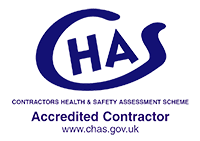Survey suggests majority of 18-24 year olds are not plumbing savvy
A survey commissioned by the Water Regulation Advisory Authority (WRAS) has found that most 18-24 year olds would not know what to do in a plumbing emergency and don’t even know the basics of plumbing maintenance.
The findings show that:
82% don’t know where the stop tap is
77% do not know who their water supplier is
18% wouldn’t know how to find a plumber in an emergency
One reason that young people don’t have this kind of knowledge is that they’re unlikely to own their own home, however a plumbing emergency can equally happen in rented accommodation or while other family members are out so knowing the basics is really important. With many people in this age bracket living away from home at university, giving them the skills to deal with a water leak is just as invaluable as teaching them how to cook or do their own washing (possibly more so!).
Of course we’re not expecting students to be able to fix a leaking tap or bleed the radiators (though this would of course probably make them a great flatmate!) but there are a number of basics that so-called post-millennials (or indeed anyone else) should have in their ‘toolkit’:
- Know what to do in a plumbing emergency. This first and foremost means knowing to turn the water off at the stop tap and, therefore, where the stop tap is. This should be one of the first questions to ask when moving into anywhere new and, ideally, make sure it’s accessible and easy to turn as you don’t want any nasty surprises in the event of an emergency. (If it doesn't you may want to suggest to the landlord that they install a Surestop).
- Know who to call in an emergency. Dealing with leaks is ultimately the responsibility of the owner of the property but tenants still need to know the procedure. For example, in university halls of residence there may be a maintenance manager to call or in private rented accommodation, you may need to ring the landlord or their appointed plumber. What you don’t want is to call your own plumber in only to find that your landlord won’t pay for it because you didn’t follow the right procedure.
- Know the early signs of plumbing problems. Many plumbing emergencies don’t just happen overnight, there are often red flags first and it’s worth knowing what to look out for. Dripping taps, running toilets, water not draining properly and banging pipes are all things that should be reported so they can be dealt with before they become bigger problems.
- Know some basic plumbing ‘best practice’. Often when younger people move away from home for the first time they’re just unaware of some basic things that could cause issues. Things like not putting inappropriate things down the sink (fats, food waste etc) or toilet (wet wipes, sanitary products etc) and not filling the washing machine to the brim. Good habits like sticking some drain cleaner down the sink every once in a while go a long way as well.
82% of 18-24 year olds not knowing very basic things like where the stop tap is is quite shocking, especially when you consider the average claim for a burst water pipe is £25,000. Having the knowledge to deal with a range of domestic situations will benefit anyone so it’s up to us all to arm ourselves with these life skills (and if you can study for a degree, you can certainly turn off the water!).





